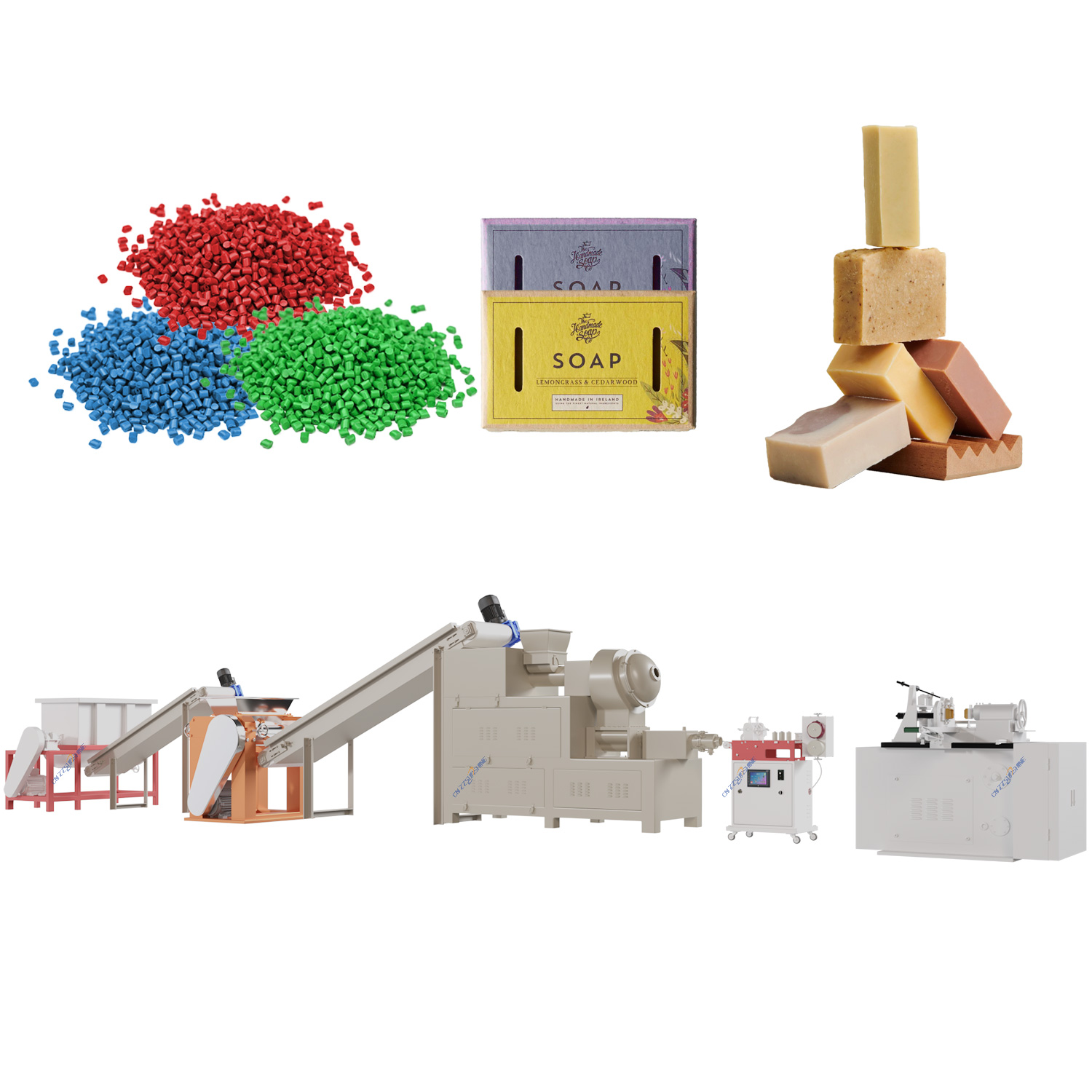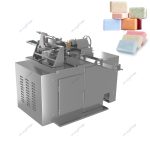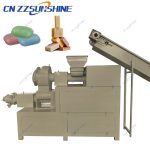Modern soap manufacturing demands precision and scalability. An automatic soap production line integrates specialized machinery to transform raw materials into finished bars with minimal human intervention. This streamlined approach is essential for manufacturers targeting competitive markets like laundry bar soap production lines or luxury bath soap making machines.
Central to the process is the soap mixer, which homogenizes fats, alkalis, and additives. Industrial mixers for chemical processing ensure consistent viscosity and reaction control. The blended paste then moves to a vacuum plodder—a critical component in toilet soap finishing lines. This machine compresses and de-aerates the mixture under vacuum, eliminating air pockets that cause cracking. For premium beauty soap making lines, dual-stage vacuum plodders achieve superior density and smoothness.
Extrusion follows via the soap plodder machine for bar soap, which shapes the material into continuous logs. These logs advance to cutting stations, where custom soap cutting machines or electric washing soap cutters slice them with millimeter accuracy. Automatic block cutter machines handle high-volume operations without compromising bar integrity.
Post-cutting, bars proceed through cooling tunnels (often paired with factory price industrial chillers) before stamping and packaging. Automatic packing machines for food-grade applications ensure hygienic wrapping for toilet or beauty bars. The entire sequence—from mixing to packaging—operates as a cohesive laundry soap making line, reducing labor costs by up to 60% while boosting output.
Leading suppliers offer modular designs, allowing manufacturers to scale from compact bath soap making machines to full-scale laundry bar soap production lines. Key advantages include recipe flexibility, reduced waste, and compliance with international hygiene standards. For businesses investing in soap making production lines, ROI hinges on selecting integrated systems with proven reliability and local technical support.





